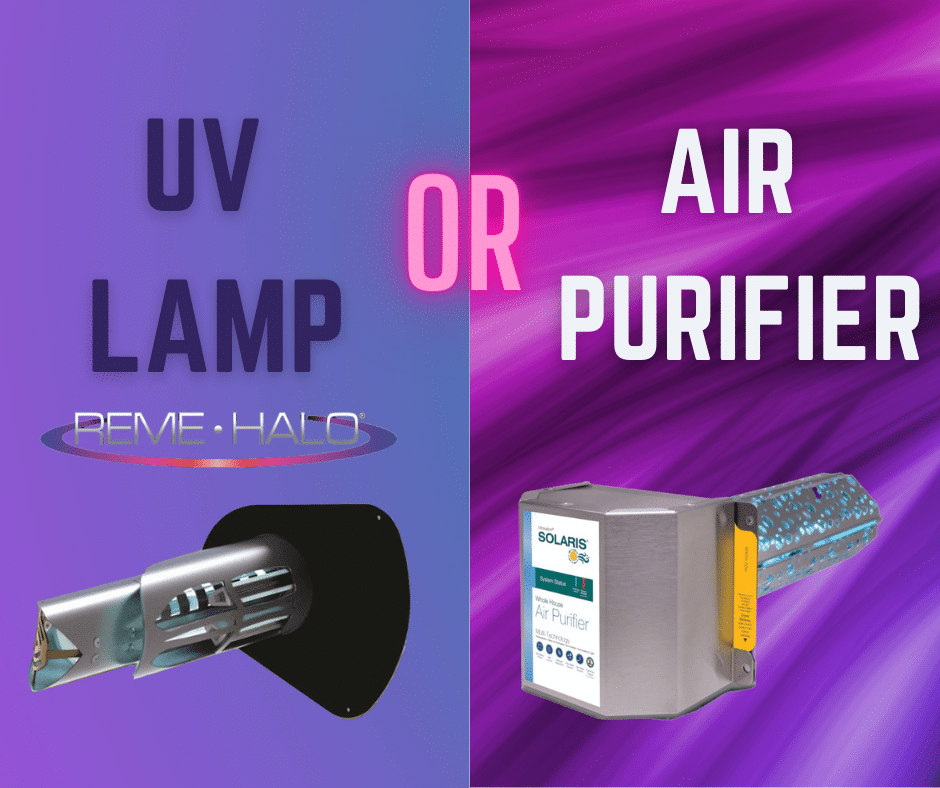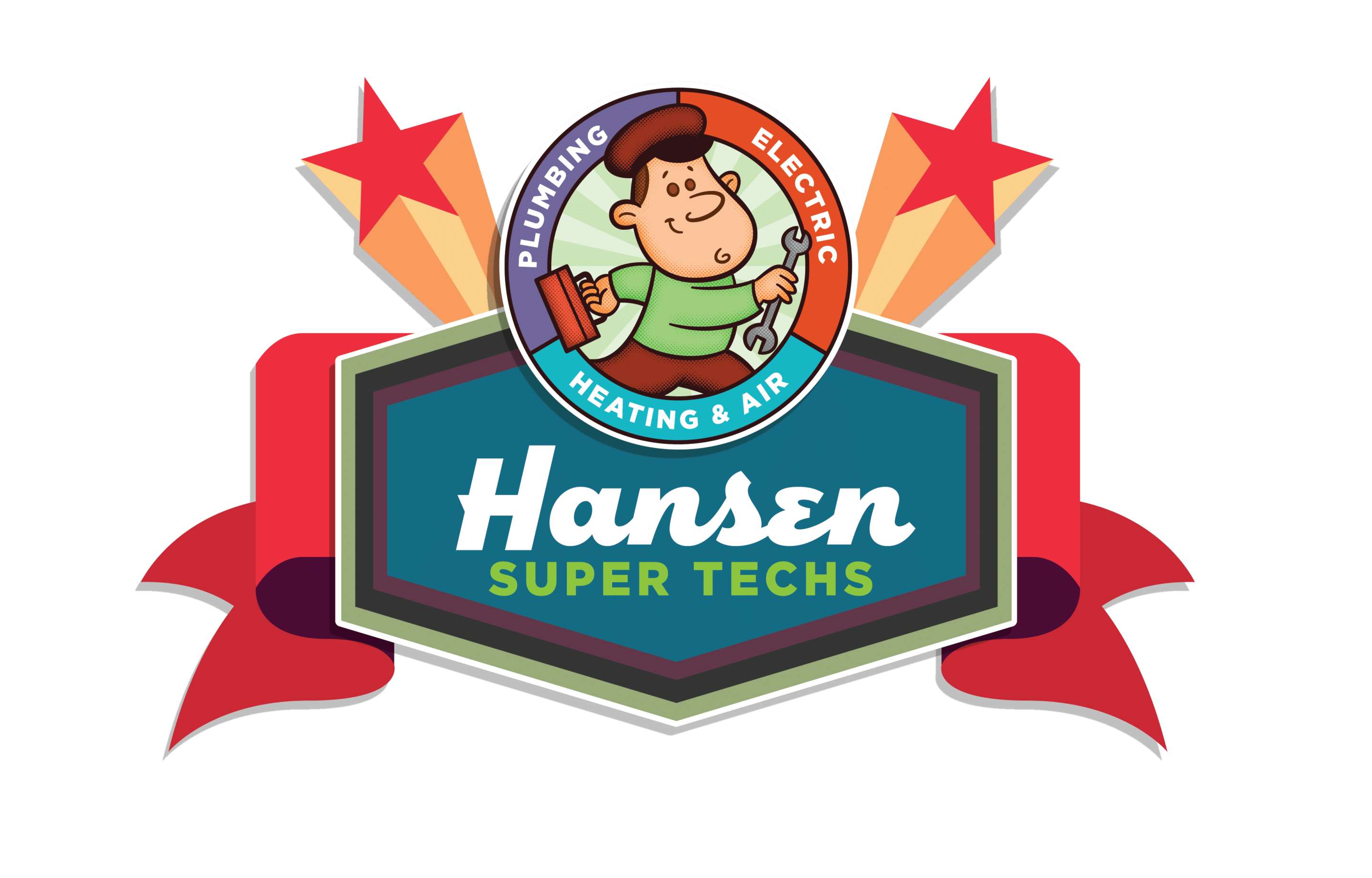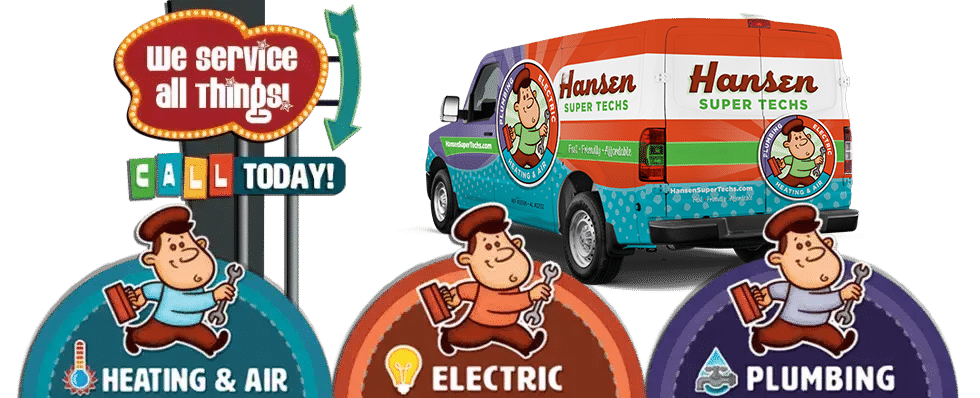Which is Better Air Purifier vs. UV Light?

In the quest for cleaner indoor air quality, the HVAC industry developed excellent solutions that help clean the air inside our spaces. The most known solutions include air purifiers and UV lights. Each of these air cleaning methods offers unique features and benefits that are suitable for both large and small spaces. In this blog, we will explore the difference between air purifiers and UV lights to help you determine which option would suit your needs best.
The Importance of Improving Indoor Air Quality
Indoor air quality is very critical to everyone’s overall well-being yet it often goes unnoticed. Because we spend countless hours indoors at home or work, it is important to ensure that our environment is as clean as possible and devoid of pollutants. From allergens and dust mites to bacteria, airborne particles, and viruses, indoor air pollution must be kept to a minimum to minimize poor health conditions.
In Biloxi, AL, and its surrounding areas, the most common air pollutants that we must be on guard for include:
- Airborne allergens
- Tobacco smoke from cigarettes
- Smoke particles from wildfire smoke
- Carbon dioxide
- Mold spores
- Volatile organic compounds
- Pet dander
- Airborne contaminants from cooking and illnesses like the flu, common cold, COVID, and others
Because these airborne particles aren’t the best news for indoor air quality, we must have some sort of air purification system to help us breathe easily and healthily at home and work.
Understanding UV Lights
Ultraviolet (UV) lights aren’t usually thought about as something that could be healthy. However, it is a powerful tool that can be used in various applications like air and water purification, disinfection, and sterilization. Ultraviolet light is a form of electromagnetic radiation that falls outside the visible light spectrum, to neutralize and destroy microorganisms such as bacteria, viruses, mold spores, and airborne allergens.
Benefits of UV Lights for Air Quality
The benefits of using UV lights are great for your home’s air quality. There are many advantages of utilizing this form of air purification but we will dive deep into just a handful of them.
Efficient Microbial Elimination
UV lights are excellent for destroying bacteria, viruses, mold, and other harmful airborne particles by killing off their DNA and RNA. This effectively prevents them from reproducing and spreading.
Reduction of Airborne Allergens
Between plant pollen and pet dander, there are a lot of allergens that can quickly destroy the air quality indoors. Ultraviolet light helps reduce these allergens, providing clean air in the home.
Odor Control
Whether you have the smell of mold, tobacco smoke, or other biological sources, UV light will help neutralize those smells and help create a welcoming atmosphere in kitchens, living rooms, and other large spaces.
Prevention of Mold Spores and Mildew Growth
Mold and mildew are always bad news and it is imperative to clear them from your home entirely, along with any particulate matter they may leave behind. Mold is harmful to health and UV lights help keep it away, helping you maintain a clean and safe environment.
Complementary to Air Filters
Many UV lights work very well in conjunction with air filters to enhance the purification of air. While the air filter captures larger particles, UV lights will work to neutralize smaller airborne particles like viruses and bacteria.
Limitations
There are some limitations to be aware of when you’re choosing a UV light system to keep your air clean. Here is a brief breakdown of them:
- UV-C lights’ effectiveness is limited only to areas within their range of reach
- They are not very effective on larger particles
- High initial purchase cost and installation
- They add to energy consumption, but if you choose a high-efficiency, Energy Star-certified light, you may still be able to keep costs down.
- The bulbs need to be replaced from time to time, creating maintenance costs
Though these limitations do lend themselves to a bit of concern, the benefits of using a UV light for your air quality will always outweigh the limitations and costs. After all, it is well worth the positive outcomes for your health.
Exploring Air Purifiers
An air purifier is usually made with a filter like a HEPA filter, activated carbon filter, or ionizer technology. These technologies are designed to purify the indoor air by removing any pollutants and airborne particles out of the room.
Benefits of Air Purifiers
A high-quality air purifier is very beneficial in the home, providing great outcomes for the living environment. Here are a handful of these benefits:
- Many activated carbon filters remove airborne contaminants and particulate matter from the air
- The right air purifier will work perfectly to reduce allergies in the air
- HEPA filters are great for removing pet dander and odors
- Many air purifiers remove volatile organic compounds and their odors
- They help remove mold, bacteria, and other forms of indoor air pollution
Types of Air Purifiers
There are different types of air purifiers on the market and we will summarize the most common ones down below. Remember that your choice doesn’t have to be overwhelming as an indoor air quality specialist is always available at Hansen Super Techs to help guide you.
High-Efficiency Particulate Air (HEPA) Filter
HEPA filters are highly recommended by the Environmental Protection Agency because they remove 99.97% or more of all particulate matter. They are excellent for penetrating particle size and breaking down fine particles to create clean air in the home. A HEPA filter is excellent to use for those who wish to minimize the amount of allergens in their home.
Activated Carbon Filter
An activated carbon filter is excellent for removing odors, gases, and volatile organic compounds from the air. If you have pets inside the home, they will work well to eliminate pet dander as well as any lingering cooking smells and fumes from household chemicals.
Ionizer Purifiers
Ionic purifiers are unique in the sense that they function by emitting charged ions into the air, which attach to airborne particles. This makes the particles heavier, making them fall into the collection plates of the purifier. These purifiers are excellent as they happen to be one of the tested air purifiers that can remove dust, smoke particles, and pollen from the air.
Limitations
Though air filters are great tools for producing a clean air delivery rate, they still have some limitations such as the ones listed below:
- Air filters work effectively only within a specific particle size. It is important to choose from the best air purifiers that have the air filter that will best suit your specific air quality concerns.
- HEPA filters are not designed to remove gases, odors, and volatile organic compounds (VOCs). If you need these air pollutants to be removed, you will need to use an activated carbon filter in conjunction with your HEPA filter.
- Air can bypass the air filter, not giving the air purifier a chance to remove the pollutants in it.
- Filters become clogged and lose efficiency over time, requiring a filter replacement
- You will need to replace HEPA filters and activated carbon filters occasionally, which will incur a maintenance cost.
Comparing the Air Filtration System to the UV Light
So which air purifier should you choose for your home or work space? Your decision will ultimately be dictated by your indoor air quality goals, the size of your space, health considerations, and your budget. When making this decision, we encourage you to do your research and speak with an indoor air quality specialist who can advise you on the best air purifiers to meet your needs.
How’s the Air Quality in Your Home?
Is the air quality in your home at the best level you want it? Contact Hansen Super Techs air purifier specialists today to receive an air quality assessment to get a sense of where improvements need to be made. The air quality experts at Hansen Super Techs will be happy to guide you in the right direction for choosing the best air purifiers that will elevate your health, safety, and comfort at home.


